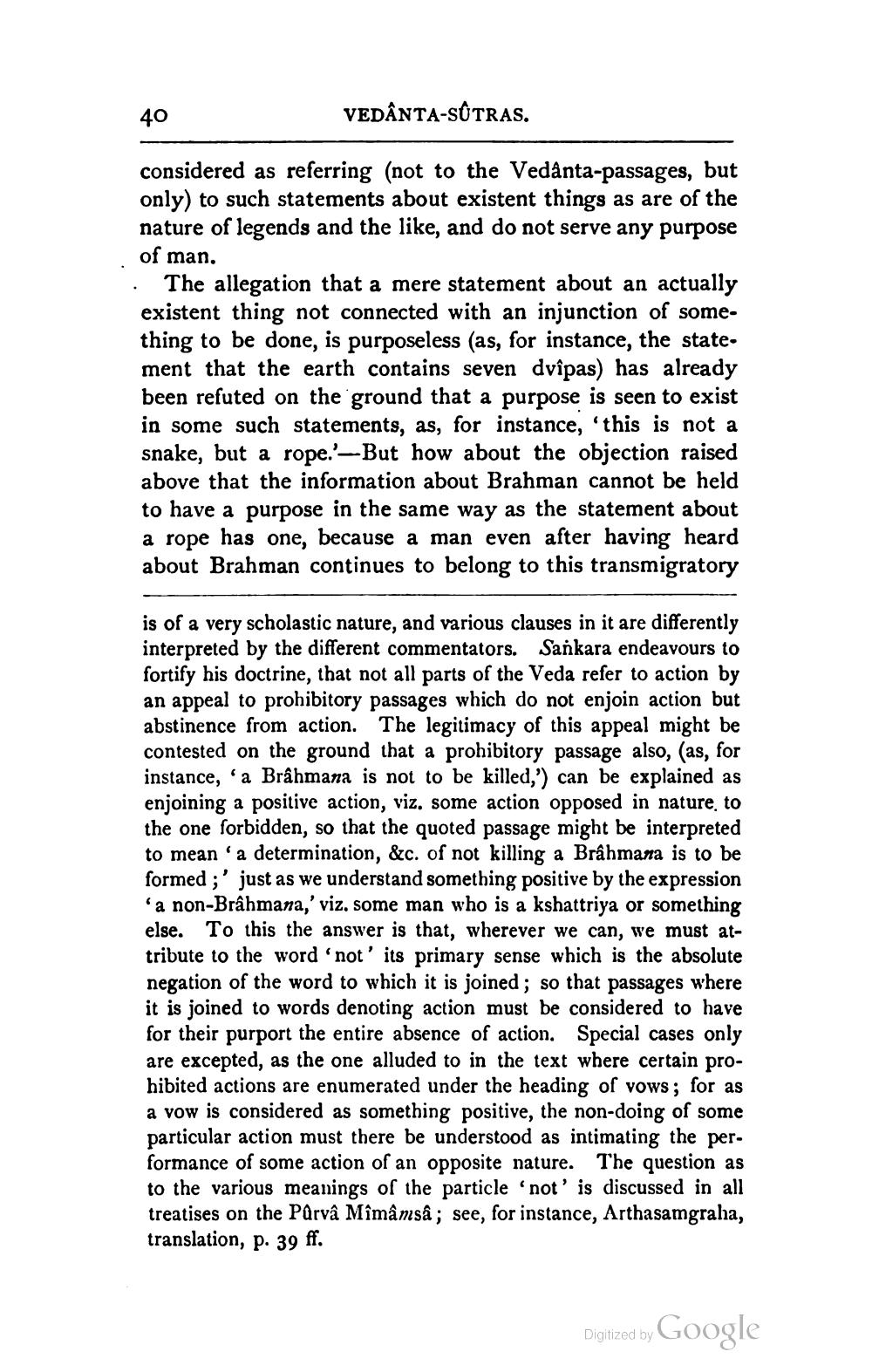________________
40
VEDÂNTA-SÛTRAS.
considered as referring (not to the Vedanta-passages, but only) to such statements about existent things as are of the nature of legends and the like, and do not serve any purpose of man. · The allegation that a mere statement about an actually existent thing not connected with an injunction of something to be done, is purposeless (as, for instance, the state. ment that the earth contains seven dvîpas) has already been refuted on the ground that a purpose is seen to exist in some such statements, as, for instance, this is not a snake, but a rope.'-But how about the objection raised above that the information about Brahman cannot be held to have a purpose in the same way as the statement about a rope has one, because a man even after having heard about Brahman continues to belong to this transmigratory
is of a very scholastic nature, and various clauses in it are differently interpreted by the different commentators. Sankara endeavours to fortify his doctrine, that not all parts of the Veda refer to action by an appeal to prohibitory passages which do not enjoin action but abstinence from action. The legitimacy of this appeal might be contested on the ground that a prohibitory passage also, (as, for instance, 'a Brâhmana is not to be killed,') can be explained as enjoining a positive action, viz. some action opposed in nature, to the one forbidden, so that the quoted passage might be interpreted to mean 'a determination, &c. of not killing a Brahmana is to be formed ;' just as we understand something positive by the expression 'a non-Brâhmana,' viz. some man who is a kshattriya or something else. To this the answer is that, wherever we can, we must attribute to the word 'not' its primary sense which is the absolute negation of the word to which it is joined; so that passages where it is joined to words denoting action must be considered to have for their purport the entire absence of action. Special cases only are excepted, as the one alluded to in the text where certain prohibited actions are enumerated under the heading of vows; for as a vow is considered as something positive, the non-doing of some particular action must there be understood as intimating the performance of some action of an opposite nature. The question as to the various meanings of the particle 'not' is discussed in all treatises on the Pârvâ Mîmânsa; see, for instance, Arthasamgraha, translation, p. 39 ff.
Digitized by
Digized by Google




